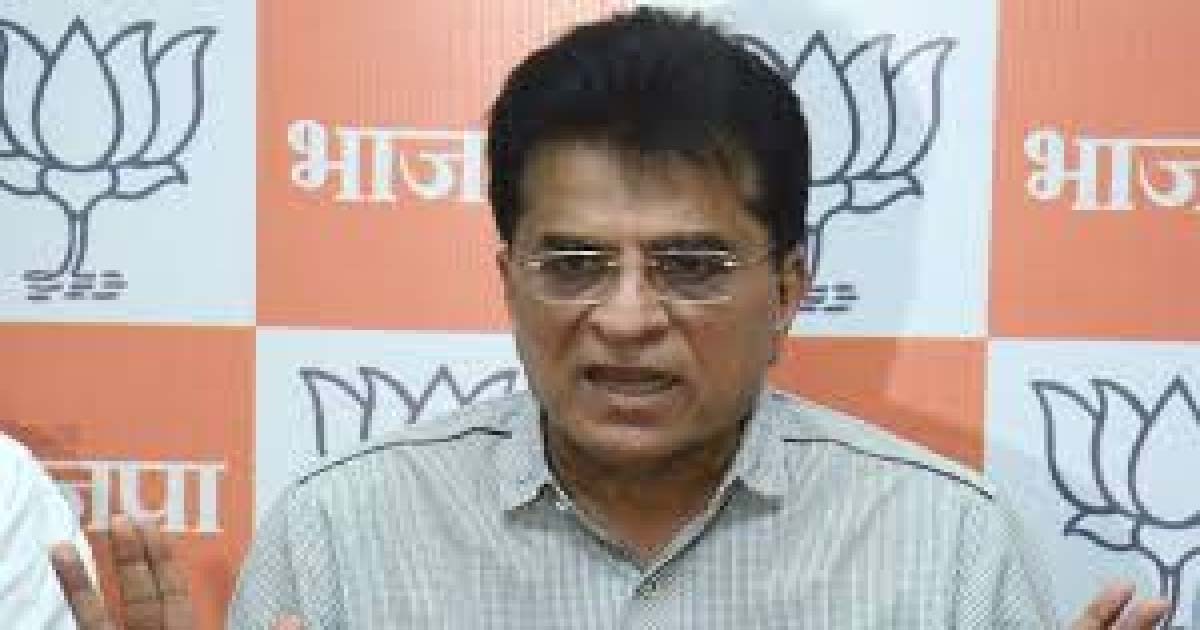General
India logs 16,464 new Covid cases, 39 deaths

In the last 24 hours, India reported 16,464 new Covid-19 cases and 39 deaths, the Union Health Ministry said on Monday.
The new fatalities increased the nationwide death toll to 5,26,396.
The active caseload has increased to 1,43,989, accounting for 0.33 per cent of the country’s total positive cases.
The recovery of 16,112 patients in the last 24 hours took the cumulative tally to 4,33,65,890. Consequently, India’s recovery rate stands at 98.48 per cent.
While the daily positivity rate marginally rose to 6.01 per cent, the weekly positivity rate stood at 4.80 per cent.
Also in the same period, a total of 2,73,888 tests were conducted across the country, increasing the overall tally to over 87.54 crore.
As of Monday morning, India’s Covid-19 vaccination coverage exceeded 204.34 crore, achieved via 2,70,63,240 sessions
Over 3.90 crore adolescents have been administered with a first dose of Covid-19 jab since the beginning of vaccination drive for this age bracket.
Maharashtra
Mumbai: Sadanand date is certain to be the next DGP of Maharashtra, the state government will decide soon, the NIA chief can now be appointed as the state chief

Mumbai: Sadanand Date is certain to be appointed as the new Maharashtra chief. Sadanand Date is currently serving as the head of the National Intelligence Agency (NIA). The state government has recommended Maharashtra cadre IPS Date for the post of DGP, after which Sadanand Date can now be appointed as the new DGP of Maharashtra. Date is also an important contender because his retirement is in 2027 and he will remain in the post of DGP for two years. The state government will soon take a decision regarding the DGP. The government has also requested to send Sadanand Date back to the state cadre, which makes it clear that Sadanand Date can be selected as the next DGP. Many senior officers are in the race for this post, but Data is the most senior among the senior officers.
Maharashtra
Illegal Bangladeshi birth certificate… Dr. Ashraf Qazi accused of forging certificate, kirit Somaiya demands action in L Ward

Mumbai: Police has started an operation against Bangladeshis in Mumbai. On the other hand, BJP leader Kirit Somaiya has started demanding action against Bangladeshis. In Kurla, an alleged Bangladeshi girl, Najma, gave birth to a girl in 2024. Najma had sent an application to the Kurla L Ward and the Collector, including the education officer, for issuing her birth certificate. In this, Kirit Somaiya has made a serious allegation that Najma is Bangladeshi and Dr. Ashraf Qazi of the clinic in the building adjacent to Kurla LIG Colony had given her a certificate for the birth certificate of her girl, after which the certificate of this Bangladeshi girl, Saiba, was issued. Kirit Somaiya has also released the Aadhar card of Najma and her husband Ayub Nat on X in this regard. Along with this, the doctor’s certificate obtained from RTI has also been released by Kirit Somaiya on X, in which the doctor said that the girl was born on November 19, but the birth took place at home. The BHMS doctor had confirmed all this. Based on the documents, Kreet Soumya has demanded action against Bangladeshi Najma. Along with this, in the application that Najma has filed before the Tahsildar, she has requested to obtain the birth certificate as soon as possible and the signature she has at the end is in Bengali. Kreet Soumya met the health officer in L ward and demanded action against the Bangladeshi birth certificate. Once again, Kreet Soumya has started targeting Muslim-majority areas before the BMC elections. Earlier, Kreet Soumya had targeted Govindi, Mankhurd and Malegaon in the case of fake certificates. Now, Kreet Soumya has applied in the suburban area of Kurla, Mumbai, that birth certificates of Bangladeshis have been issued here too. Kreet Soumya has also referred to 15 fake certificates that have been issued to alleged Bangladeshis in Kurla. Mumbai Police has deported more than 1,000 Bangladeshis living in Mumbai and registered 404 cases, despite which Kret Soumya is not satisfied with the police’s action. This action was reported by Mumbai Police Commissioner Devin Bharti himself. When Dr. Ashraf Qazi was asked about Kret Soumya’s allegation, he called it baseless and said that the girl was born at home and after that the girl had a complaint, I treated her and issued her medical certificate. The work of issuing birth certificates is the responsibility of the BMC administration.
Mumbai Press Exclusive News
“Seerat-un-Nabi (PBUH) and Unity of the Ummah” conference at Mira Road… More than 3500 participants attended this historic conference

Mira Road: A grand and grand conference titled “Seerat-un-Nabi ﷺ and Unity of the Ummah” organized by Jamaat-e-Islami Hind Mira Road was held at NH School Ground, in which the extraordinary participation of more than 3500 men and women made it a historic gathering.
The opening remarks were delivered by Dr. Tariq Shah (Ameer of Local Jamaat-e-Islami Hind, Mira Road) and it was made clear that the main objective of the conference is to promote unity and solidarity in the Muslim Ummah, to build Islamic character in the light of the Seerat-e-Nabvi ﷺ, and to strengthen the struggle for the revival of the Prophetic mission in the society. He also explained the activities, subsidiary organizations and projects of Jamaat-e-Islami. He said that the main objective of this gathering is to bring the Ummah together at one center in the light of the Seerat-e-Nabvi ﷺ and to strengthen the struggle for positive change in the society.
The presidential address was delivered by Maulana Waliullah Saeedi Falahi, Vice President of Jamaat-e-Islami Hind, which was greatly appreciated by the audience. Maulana said in his address that the success of the Ummah lies in the complete adherence to the Seerat-e-Prophet (peace be upon him). If Muslims adopt the morals, justice, and wisdom of the Holy Prophet (peace be upon him), then society can become a cradle of peace and justice. He guided in the light of the Seerat-e-Prophet (peace be upon him) and said that religion commands us to be just, honest, and serve the people, and these qualities form the foundation of a strong nation and a developed society.
The general address was delivered by Ameer-e-Halqa of Jamaat-e-Islami Hind Maharashtra Maulana Ilyas Khan Falahi, Nazim City Jamaat-e-Islami Hind Mumbai Mr. Rashid Khan, Mohtamam Darul Uloom Azizia Maulana Abdullah Qasmi, Imam Haideri Mosque Syed Hassan Imam, and political leader Syed Muzaffar Hussain.
Other speakers shed comprehensive light on important topics such as the role of Muslims in the development and progress of the country, the strength of the family system, the active role of women in Islamic movements, and the mission of the Holy Prophet (peace and blessings of Allah be upon him)—propagating the message of religion and forming the best moral character. Finally, the conference in-charge Atta-ul-Haq specially thanked all the participants, social and religious leaders, the public, and the organizational departments—SIO, GIO, and Youth Movement—for their services.
The gathering ended with a heartfelt prayer by Maulana Zakaria Sahib.
-

 Crime3 years ago
Crime3 years agoClass 10 student jumps to death in Jaipur
-

 Maharashtra1 year ago
Maharashtra1 year agoMumbai Local Train Update: Central Railway’s New Timetable Comes Into Effect; Check Full List Of Revised Timings & Stations
-

 Maharashtra1 year ago
Maharashtra1 year agoMumbai To Go Toll-Free Tonight! Maharashtra Govt Announces Complete Toll Waiver For Light Motor Vehicles At All 5 Entry Points Of City
-

 Maharashtra1 year ago
Maharashtra1 year agoFalse photo of Imtiaz Jaleel’s rally, exposing the fooling conspiracy
-

 National News1 year ago
National News1 year agoMinistry of Railways rolls out Special Drive 4.0 with focus on digitisation, cleanliness, inclusiveness and grievance redressal
-

 Maharashtra1 year ago
Maharashtra1 year agoMaharashtra Elections 2024: Mumbai Metro & BEST Services Extended Till Midnight On Voting Day
-

 National News1 year ago
National News1 year agoJ&K: 4 Jawans Killed, 28 Injured After Bus Carrying BSF Personnel For Poll Duty Falls Into Gorge In Budgam; Terrifying Visuals Surface
-

 Crime1 year ago
Crime1 year agoBaba Siddique Murder: Mumbai Police Unable To Get Lawrence Bishnoi Custody Due To Home Ministry Order, Says Report












